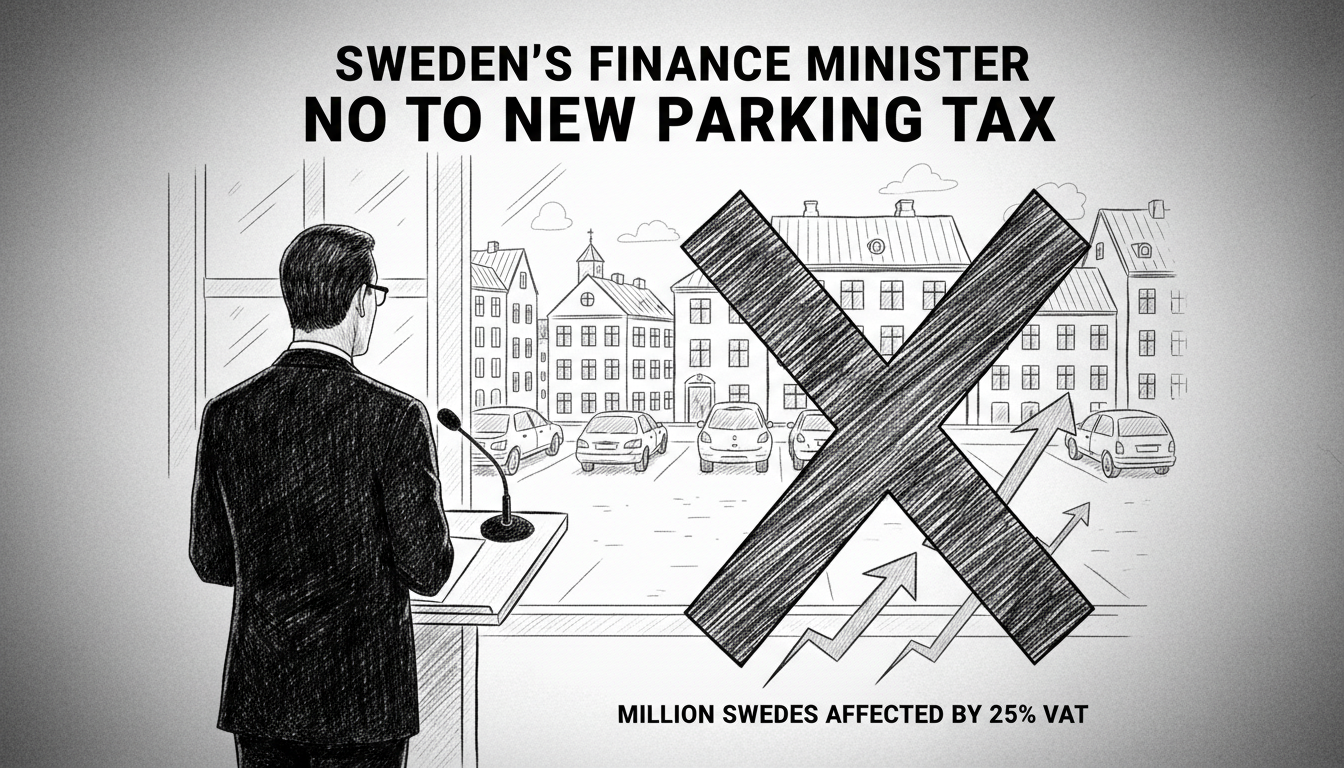Swedish Finance Minister Elisabeth Svantesson is pushing back against new tax regulations that would impose VAT on residential parking spaces. The Swedish Tax Agency plans to start charging 25% VAT on parking spots connected to rental and condominium properties starting October next year. Svantesson calls the move completely unreasonable and wants to launch an investigation to stop the changes.
Currently, renting or owning apartments in Sweden is VAT-free, and parking spaces attached to homes have traditionally followed the same tax exemption. The minister expressed surprise at the Tax Agency's new interpretation. She noted many Swedes already face expensive parking costs that vary by region. The additional 25% VAT would create further financial strain during already challenging economic times.
Approximately one million people could be affected by these new parking VAT rules according to government estimates. Svantesson plans to address the issue through the Tidö Agreement cooperation between governing parties. She believes other political parties will support finding a solution before the October implementation date.
The Tax Agency's new assessment establishes three exemption criteria for parking space VAT. First, the parking spot must be within the same property complex or adjacent to the residence. Second, tenants cannot opt out of parking rights when signing leases to pay lower rent. Third, tenants cannot sublet parking spaces for commercial purposes. When all three conditions are met, parking remains VAT-exempt as it's considered subordinate to the VAT-free housing rental.
This proposed tax change comes amid Sweden's ongoing housing affordability challenges. Many urban residents already struggle with high living costs, particularly in major cities like Stockholm, Gothenburg, and Malmö where parking fees are substantial. The timing appears politically sensitive given Sweden's current economic climate and housing market pressures.
Parking policy has become increasingly contentious in Swedish cities as municipalities push sustainable transportation while residents maintain car dependency. This tax proposal represents another front in the ongoing tension between revenue generation and household cost concerns. The government now faces balancing budget needs against potential backlash from affected voters.
The finance minister's opposition suggests internal government disagreement over tax policy implementation. Her quick response indicates the political sensitivity of adding costs to housing-related expenses. The outcome will test the governing coalition's ability to coordinate tax policy across different agencies and ministries.

